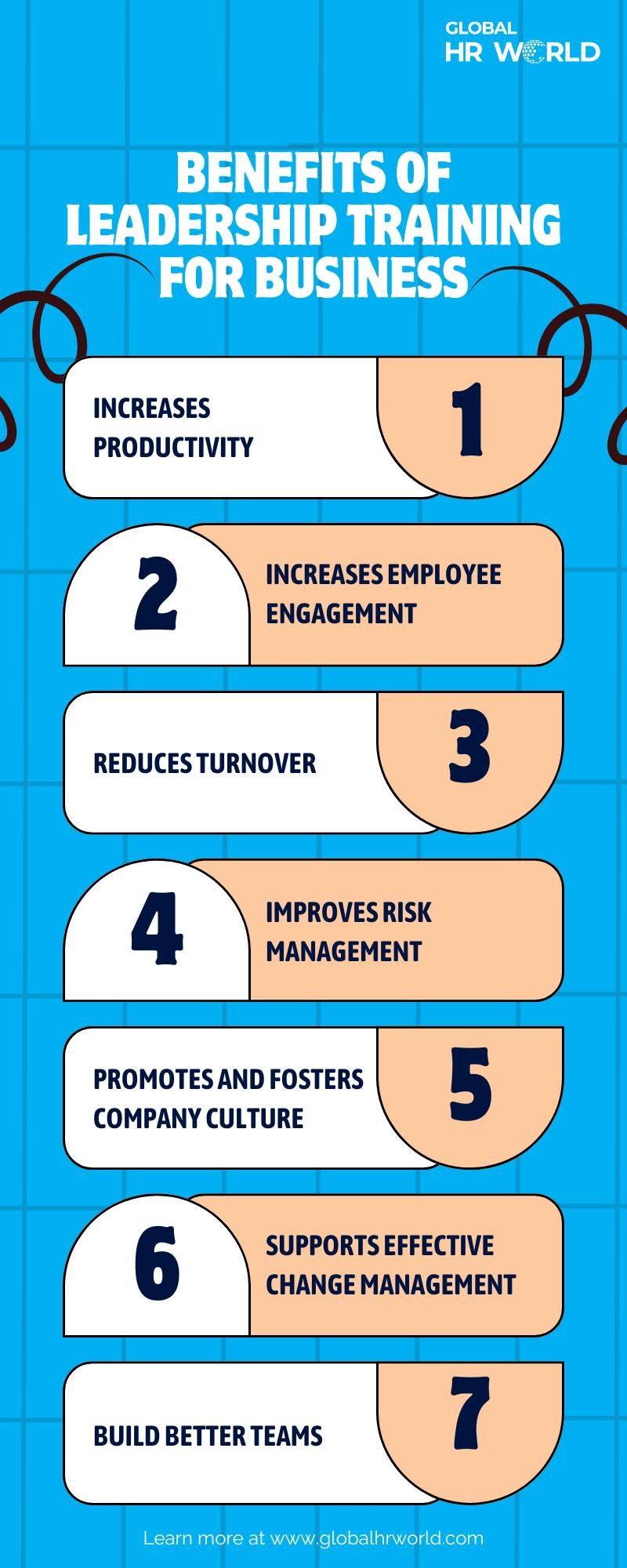Leadership training for business is a crucial predictor of an organization’s success. Competent and effective leaders have the right skill set to guide their teams to greater heights. They set an example, foster a culture of excellence, and know how to motivate, push, and facilitate their teams to improve. In this article, you will explore the meaning and benefits of leadership training for business so you can incorporate it effectively into your organization.
What is Leadership Training for Business?
Leadership training is any training program that teaches the knowledge, theories, and skills needed for individuals to become better leaders. These training programs equip leaders to become more well-rounded, inspiring, and motivating, so they can positively impact their teams and push for growth. Effective leaders are a great asset to businesses and employees. They help organizations meet business goals and create uplifting working environments for employees.
Leadership training for business is not a one-size-fits-all approach, however. It differs depending on your organization’s culture, objectives, the existing strengths and weaknesses of leaders, and the career stage one is in. Let us explore one of these factors, career stages.
Leadership Training for Business in Early to Mid-Career
In the early stages of your career, it is unlikely that you will have full-fledged leadership roles. However, you might be given leadership responsibilities from time to time.
This stage of your career is best for understanding and practicing leadership soft skills, such as resource and time management. Additionally, it is good for exploring your desired career trajectory and figuring out/honing your leadership style.
Leadership Training for Business in Mid-Career
By mid-career, your responsibilities increase. You get to take more initiative in your role and are called on more often to mentor and help your team. This is also the stage where the knowledge and skills that you have start stagnating and might need to be augmented with more advanced training. Many people consider degrees such as MBAs at this stage of their career, but you can also take other routes to build your competencies.
Leadership Training for Business at the C-Suite/Senior Executive and Board Level
At this stage, you are directly responsible for teams and your organization. This is the career stage where people get traditional leadership titles. Naturally, the responsibility at this level is much higher and is concerned with the entire organization. You need to be able to think critically and use your industry expertise to make strategic decisions about your organization’s growth. At the same time, you will need to ensure employees are growing.
At this stage, self-development efforts and networking are your best avenues for sharpening your leadership skills. Additionally, if you are at the board level, you will need to broaden your knowledge by educating yourself about topics such as sustainability, digital transformation, etc.
Benefits of Leadership Training for Business
Leadership training has many benefits for an organization. This includes:
Increased productivity
Effective leaders increase the productivity of their teams by motivating employees, as well as setting up effective, streamlined procedures for achieving tasks.
Increase employee engagement
Good leaders foster a strong sense of purpose within employees and establish meaningful connections with them, leading to increased employee engagement.
Reduces turnover
Employees who feel motivated, supported, and purposeful are more likely to stay at the organization for longer and be satisfied with their work. Hence, effective leaders also reduce turnover and lead to greater employee retention.
Improve risk management
Competent and confident leaders know how to stay calm and strategic even in a crisis. Thus, well-trained leaders can assess risky situations and prevent them or take proactive action to tackle them and mitigate damage, thereby improving the organization’s risk management efforts.
Promote and foster company culture
Well-rounded leaders also are advocates for organizational culture. They are well-aligned with the company’s culture, have a good eye for potential recruits who might also be aligned, and set an example by walking the walk, giving employees a role model to follow. Thus, they promote and foster company culture by participating in it.
Support effective change management
Change management efforts also progress smoothly and successfully under competent leaders. They know how to develop change management plans that are effective without being overwhelming and know how to get employees on board with any changes being planned by the organization. They reduce the stress and friction caused by organizational change by keeping employees grounded and helping them see the purpose behind change.
Build better teams
Lastly, good leaders facilitate the creation of better teams. As mentioned, they have a good eye for hiring the right fit of people. Additionally, they know how to delegate tasks based on individual strengths, ensuring that all employees are responsible for fulfilling responsibilities that they are the best at.
Infographic

Knowledge Check!
Frequently Asked Questions (FAQs)
What is leadership training in business?
Leadership training is any training program that teaches the knowledge, theories, and skills needed for individuals to become better leaders.
Why is leadership training important in business?
Leadership training programs equip leaders to become more well-rounded, inspiring, and motivating, so they can positively impact their teams and push for growth. Effective leaders help organizations meet business goals and create uplifting working environments for employees.



